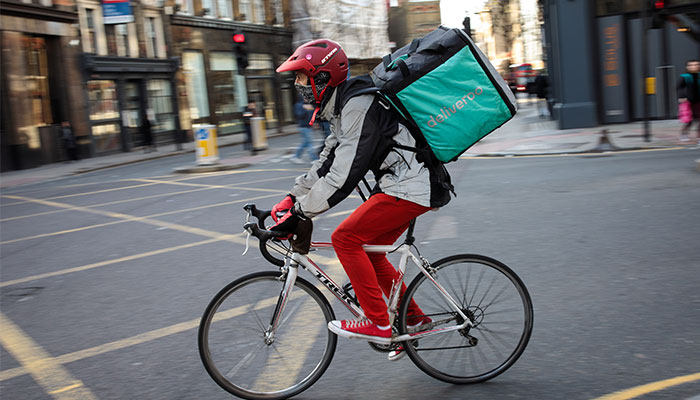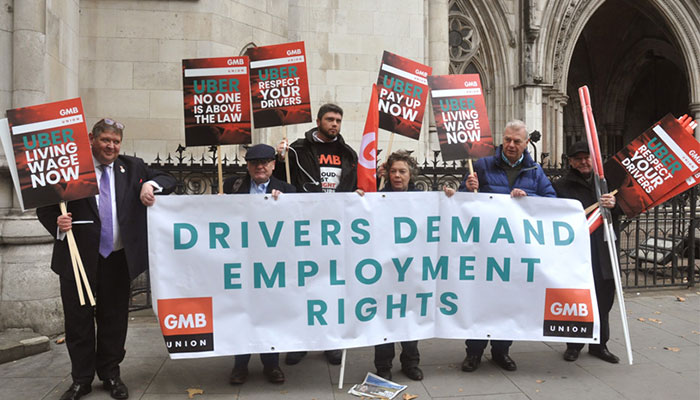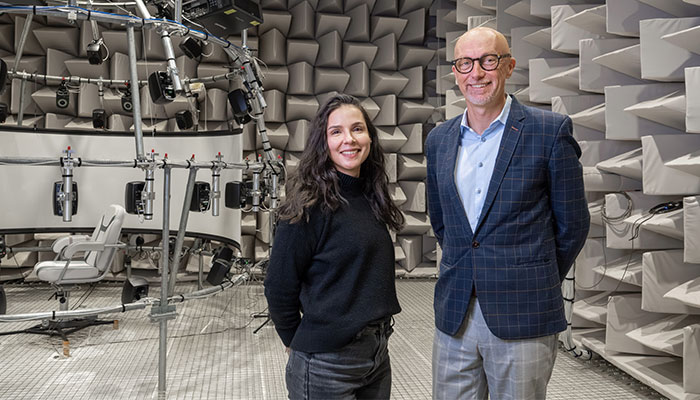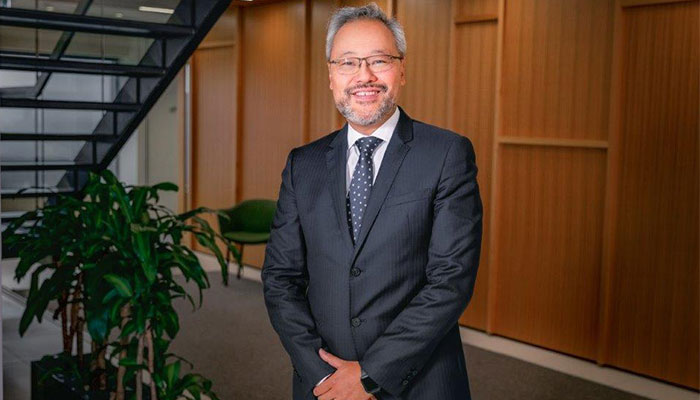A growing weight of court rulings which have characterised gig economy workers as employees should make it harder for companies to flout legally enforceable and decent work standards.

Streets of London: Under new UK reforms, millions of part-time and flexible workers in the so-called gig economy will now enjoy many of the same rights that traditional employees receive.
At least, that is what we as a society should be hoping and aiming for, say Professor Lucy Taksa and Dr Troy Sarina – even if it means sacrificing the convenience and cheaper costs that the gig economy has delivered to consumers.
“We might focus solely on the insecurity of the ‘precariat’, but what we need to recognise is that the rise of precarious work, of gig work, is actually increasing the insecurity of the so-called secure workforce,” says Taksa, who is Director of Macquarie’s Centre for Workforce Futures.
Indeed, Sarina’s research into how digital intermediaries are connecting buyers and sellers of labour reveals gig work is no longer associated with just food delivery and transport services. Instead, the conditions of highly technical forms of work including engineering and computer programming are now being dictated by global digital platforms which facilitate the formation of short-term contracts, rather than companies engaging people as employees.
Against this backdrop workers have begun to fight back, and more than 40 major legal challenges have been brought to courts by rights-seeking gig workers across 20 countries, including Australia.

Victory: GMB trade union members - who have now been granted employee rights - demonstrate outside the High Court as their case against Uber was being heard in London.
In the UK earlier this year, the Supreme Court ruled that Uber drivers are ‘workers’ under UK employment law, not independent contractors, and therefore have rights to entitlements such as minimum wage, sick leave and holiday pay.
In a further sign of trouble for this digital-era business model, Deliveroo’s IPO on the London Stock Exchange failed to meet expectations after fund managers raised concerns about the working conditions of its couriers, hundreds of whom demonstrated outside the Exchange on Deliveroo’s first day of open trading this month.
Companies have apparently started to take note. The popular online food delivery platform Menulog announced this week that it would be employing its Australian workers directly so they can access Award minimum conditions and safe work protections because it is “the right thing to do”.
What we are seeing here is that the law is robust and dynamic in responding to how technology is changing the way work is organised.
Sarina says that in Australia, “up until now, the rates of pay for gig economy workers have often been lower than Award wages, so there is the issue of whether these models have been used to circumvent standards.
“The bigger question is the ongoing sustainability of the business models themselves; if the main advantage of these models was a reduction in employment and labour costs, and these companies now can’t do that, then can the models even remain viable?”
Taksa says a model where workers and the services they deliver are cheap because workers don’t have rights and protections also transfers costs when things go wrong from business to the public purse.
“We have seen deaths of gig economy workers which raises occupational health and safety issues because the risks – both in terms of physical threats to workers and mental health implications – are not adequately being accounted for.”
Law looks beyond form to substance
While Australian employment law does not have the same 'worker' category as UK law, Sarina says that country’s Supreme Court ruling is nonetheless a shot across the bows of companies’ operations in Australia.

Fair's fair: Dr Troy Sarina says there is the issue of whether gig economy models have been used to circumvent standards of worker pay and conditions.
“The UK court decision is important because it shows that courts are continuing to look beyond the terms of the contract and instead are focusing on identifying the true nature of the relationship between the parties,” Sarina says.
“What we are seeing here is that the law is robust and dynamic in responding to how technology is changing the way work is organised.”
Industry advocates argue that the gig economy provides work for many people who otherwise find it hard to enter the labour market, and that giving them employee-like rights risks interrupting the gig economy’s growth and the benefits to the community that flow from it.
- Conservation on ice: How frozen zoos can help save animals
- Please explain: Why does the world need poetry?
But Taksa notes that many gig workers do not have the opportunity for more decent work. For some, particularly migrants, the issue relates to the lack of recognition of overseas qualifications and skills for full employment in Australia.
“There are costs associated with this lack of recognition not only borne by individuals but also by society. Perhaps organisations need to consider how cost savings associated with the shift from full-time to gig workers can result in productivity losses for full-time staff who are left to perform connecting and intangible work on top of their existing responsibilities."
She argues that "the impact of intangible costs on productivity, health and wellbeing need to be accounted for".
Vulnerable workers hardest hit
The gig economy is sometimes seen as combining entrepreneurial interests and increased worker flexibility, which has allowed some people to unlock unused skills that can contribute to the economy overall, Sarina explains.
"This seems to be a good thing because it provides people with greater autonomy and discretion over their own time and there are certainly quite a few people who use gig work to supplement their income,” he says.
“The other side of that, when you look at it from a workers’ rights and social needs perspectives, is that we have to think about the proliferation of that work, and ask whether it does help maintain decent standards and safe conditions of work for some of our most vulnerable members of society.”
Adds Taksa: “We need to be mindful of the fact that the gig economy also results in underemployment – and, at the other extreme, it can lead to intensification of work and overexploitation of workers, as people juggle many jobs to try and make a living wage.
In effect, choices to depend on gig labour highlight systemic issues relating to the organisation of work more broadly, and the broader impacts on people and their lives."

Growing ‘precariat’: Professor Lucy Taksa says the precarious work industry is moving beyond food delivery and transport services and into engineering and computer programming.
The intensification of work generally has been a core element of the success of the gig economy model, says Taksa, since its growth responds to people often being too time-poor to cook, clean or do the gardening, outsourcing the work to cheap gig labour instead.
- Hero volunteers of the AIDS crisis tell their stories at last
- For golf pros, coo l heads beat hot hands: new study
In one sense, the gig economy hasn’t really changed the nature of work. For Sarina, it has enabled ‘old world’ work like food delivery, gardening and chauffeuring to be organised in a ‘new world’ way.
But much of the benefit of this work is captured by the owners of digital platforms at the expense of the worker.
Professor Lucy Taksa is Director of the Centre for Workforce Futures and Professor of Management at Macquarie Business School.
Dr Troy Sarina is a Member of the Centre for Workforce Futures and Senior Lecturer in the Department of Management at Macquarie Business School.



